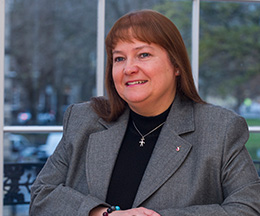Murray Beith Murray LLP is a leading Scottish private client law firm.
For 175 years we have specialised in meeting the legal, financial and administrative needs of individuals and families, family trusts, charities and private companies.
Murray Beith Murray LLP is a leading Scottish private client law firm.
For 175 years we have specialised in meeting the legal, financial and administrative needs of individuals and families, family trusts, charities and private companies.
 If you have been appointed as an Executor of an estate, you may have heard the term ‘applying for Confirmation’. An executor must normally obtain Confirmation before distributing the assets forming part of the deceased’s estate in line with the wishes set out in their Will. However, there are several steps involved in obtaining Confirmation. This article provides a brief overview of what is involved in the Confirmation process.
If you have been appointed as an Executor of an estate, you may have heard the term ‘applying for Confirmation’. An executor must normally obtain Confirmation before distributing the assets forming part of the deceased’s estate in line with the wishes set out in their Will. However, there are several steps involved in obtaining Confirmation. This article provides a brief overview of what is involved in the Confirmation process.
As part of the Confirmation application, the executor must provide an inventory of all of the assets that form part of the deceased’s estate. This can be quite an involved process, as the inventory must include all of the deceased’s assets, including money, property, valuables, shares, land and any other items of value. To create the inventory, the executor will need to contact all of the organisations where the deceased held accounts to get information about the value of their assets at the date of death.
If the deceased owned property, it may be necessary to obtain a valuation from a surveyor. If the deceased has possessions of value such as art, jewellery, cars or antiques, the executor may need to instruct a professional to have these items valued. Professional valuations are particularly important if the estate is likely to attract Inheritance Tax, if there may be a Legal Rights claim or in the circumstances where the residue of the estate is to be divided amongst a number of beneficiaries.
Typically, paying Inheritance Tax is the second step involved in winding up an estate. The inventory will determine whether the estate will be liable for Inheritance Tax. If the total value of the deceased’s assets is more than £325,000, the estate may incur inheritance tax. There are numerous exemptions and reliefs available, and an experienced executry solicitor will be able to advise you fully as to the Inheritance Tax position of the estate.
At least part of the Inheritance Tax due must be paid before the executors can obtain Confirmation, but at this time, the executors may not yet have access to the funds required to pay. Executors are not personally liable to pay the inheritance tax on the estate, but they may be required to pay what is due, either from the deceased’s assets or possibly by securing an ‘executors’ loan’, to allow them to obtain Confirmation and gain full title to deal with the estate assets/sell property.
Depending on the circumstances and the date of death, the Executors apply for Confirmation by submitting the appropriate forms to either HM Revenue and Customs and then the relevant Sheriff Court or in some instances (mainly cases where no Inheritance Tax liability arises) direct to the Sheriff Court. There may also be additional paperwork required. It is common to have the advice and assistance of a specialist solicitor for creating the inventory. Also, the rules surrounding Inheritance Tax are complicated and completing the Court and Revenue forms can be challenging and time consuming.
Carol McGovern is an Executry Paralegal and deals with all aspects of executry administration and related tax matters. Murray Beith Murray Executry group has assisted many families with the legal issues arising following the death of a relative. If you have any questions about the issues covered here, or if you wish to discuss any other legal matter, then please complete our contact form or call us on 0131 225 1200.
At Murray Beith Murray, we're more than just lawyers - we're trusted advisors. We clearly outline the executry process, providing straightforward, practical advice and assistance. Our approach to client service is friendly and responsive, and we operate with the highest standards of integrity and professional expertise.
